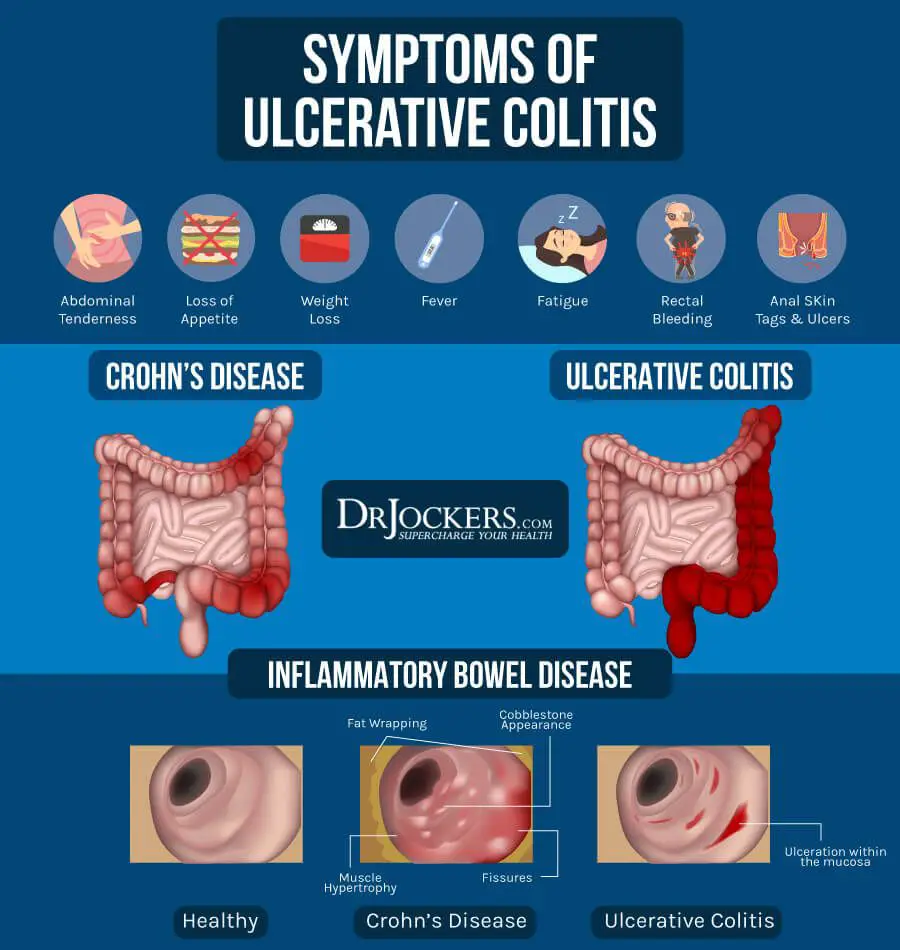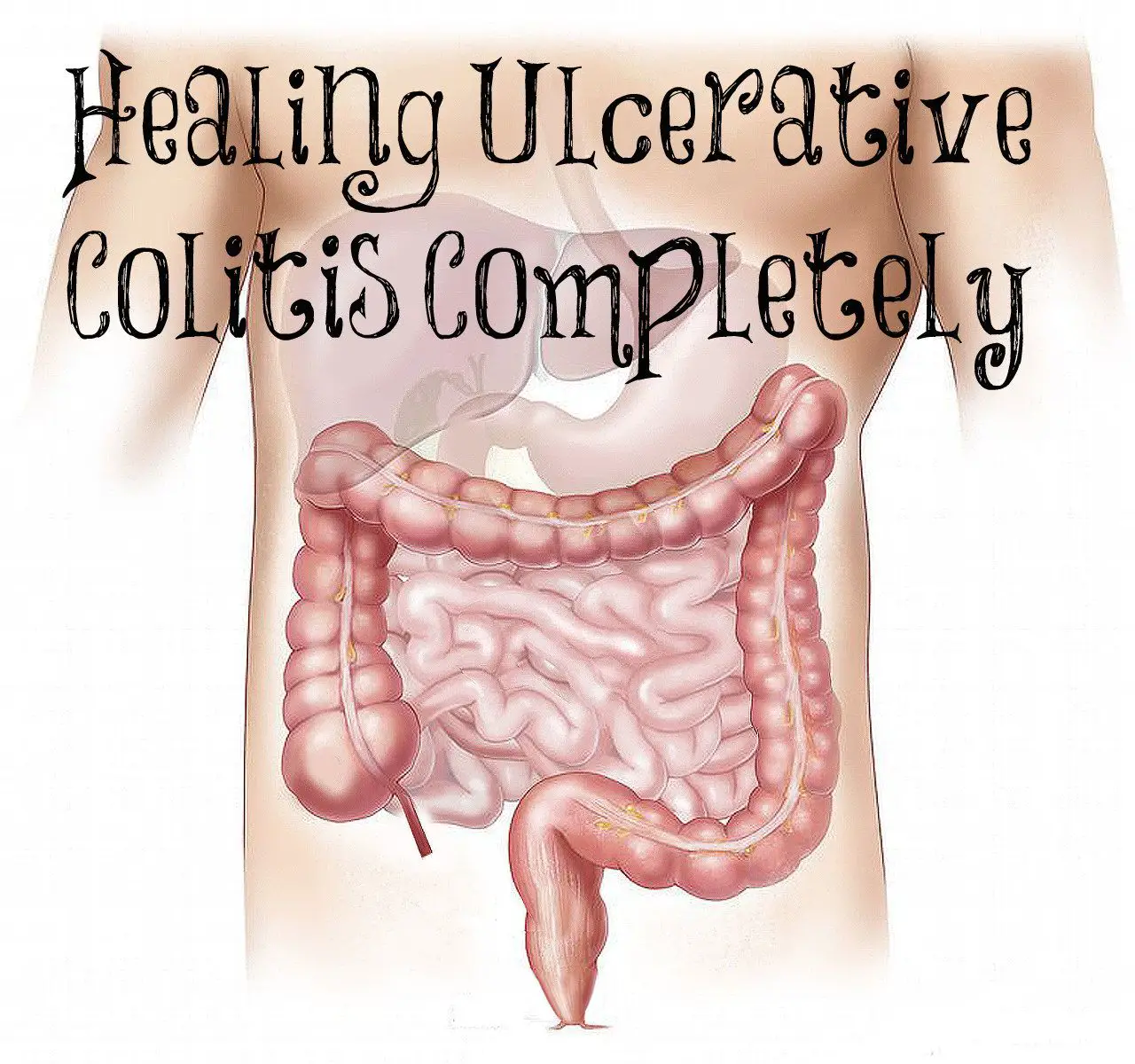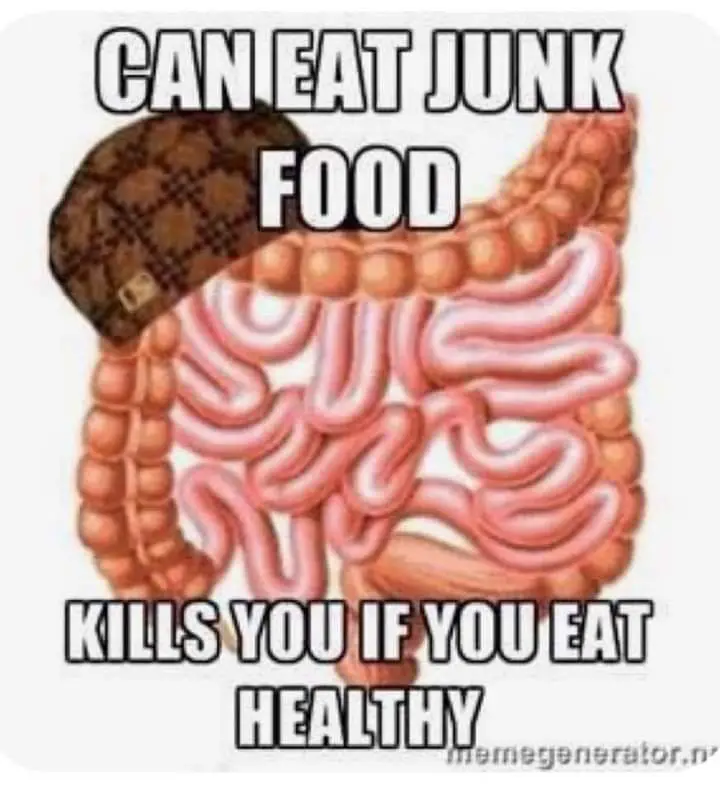Get Help From A Qualified Dietitian Nutritionist
If you are experiencing IBD fatigue, there is help. Contact a registered and licensed dietitian nutritionist for personalized support and guidance in creating an eating plan that will work for you. With the right tools in your toolbox, you can start to feel better and have more energy to enjoy life again.
Articles On Ulcerative Colitis Overview
Ulcerative colitis affects your colon, which is part of your digestive system. A lot of things can cause trouble in that general area, so how do you know what it feels like to have ulcerative colitis?
It depends on how severe it is, and on what part of your colon is affected.
Also, symptoms can come and go. You might not have any for weeks, months, or even years, and then they come back. Chances are about 50-50 that the effects will be mild.
Still, most people with the disease have a few common issues:
What Can I Expect If I Have A Diagnosis Of Ulcerative Colitis
Ulcerative colitis is a lifelong condition that can have mild to severe symptoms. For most people, the symptoms come and go. Some people have just one episode and recover. A few others develop a nonstop form that rapidly advances. In up to 30% of people, the disease spreads from the rectum to the colon. When both the rectum and colon are affected, ulcerative symptoms can be worse and happen more often.
You may be able to manage the disease with medications. But surgery to remove your colon and rectum is the only cure. About 30% of people with ulcerative colitis need surgery.
You May Like: Best Step Anti Fatigue Foam Floor Mat
Weight Loss And Loss Of Appetite
About half of individuals with ulcerative colitis experience weight loss.4 Loss of appetite is common, due to fear of eating and the symptoms that follow.4,13 Some people have very limited diets in order to manage their symptoms. Healing from inflammation or surgery can increase nutrient needs at a time when it is difficult to eat. Diarrhea can cause significant loss of fluid and blood.
One weight measurement is not enough for evaluating a persons nutritional status.13 It is important that your health care provider or dietitian tracks changes in your weight over time.
What Alternatives Are There To Bread To Avoid Bloating

Switching to a different type of bread can often reduce or eliminate bloating, but not always.
For some, swapping to authentic sourdough bread can be enough. This is because the sourdough culture, together with the slow rise typical of an authentic sourdough loaf, breaks down many of the digestion-resistant components in breadsuch as the enzyme inhibitors. Even if a loaf of bread is not sourdough but has still been given a long proving time, it can be more tummy-friendly. Try buying your bread from a traditional bakery to see if this makes a difference.
Different kinds of wheat that are lower in gluten and enzyme inhibitors are another option. These include spelt, kamut, einkorn and emmer. Flours and breads made from these ancient grains are now available in many supermarkets.
Gluten-free breads are made from non-gluten containing flours, which dont carry the enzyme inhibitors and wheat germ agglutinin. But these products can contain emulsifiers and other additives that can affect your gut health, so its important to read the label carefully before choosing, or make your own.
Recommended Reading: Does High Blood Pressure Cause Fatigue
Don’t Miss: Can Fatigue Cause Shortness Of Breath
Plan Your Day Carefully
If youre experiencing an ulcerative colitis flare, you have only a limited amount of energy to spare. If you usually feel more energetic in the morning, plan to tackle your most demanding tasks at that time. Don’t overcommit when it comes to your social calendar. “Be realistic with yourself and know your limits,” says Parris. She suggests picking one or two events a week and planning for them. For example, if you have an upcoming dinner on a Saturday night, she says, spend that morning and afternoon relaxing instead of running errands.
Is It Normal To Feel So Tired After Eating
Yes, relax, Itâs a normal response. Getting tired after eating, or âpostprandial fatigueâ , is a normal fatigue response to eating a large meal. Itâs so normal that the word âfood comaâ is a huge hashtag on Instagram filled with photo-worthy stomach-filling meals. âFood comasâ are among the same family as the âmeat sweatsâ which also have a scientific reason behind them.
Recommended Reading: Does Low Platelet Count Cause Fatigue
When Should I Be Worried About Abdominal Bloating
See your healthcare provider if your bloated stomach:
- Gets progressively worse.
- Persists for more than a week.
- Is persistently painful.
- Comes with symptoms of illness, such as fever, vomiting or bleeding.
A note from Cleveland Clinic
A bloated stomach is not a pleasant feeling. While its a common experience and usually temporary, you may become weary of the cycle. Spending a little focused attention on the problem to identify the cause can be well worthwhile. Try recording your symptoms and possible triggers in a journal. Note diet, hormonal and stress factors. When in doubt bring your notes to a specialist for professional guidance. The different factors that contribute to bloating can be complex and difficult to parse, but medical testing can help. As always, seek medical attention if your symptoms are persistent or severe.
To Avoid: High Fiber Foods
Foods that are high in fiber might be a challenge during an IBD flare-up. Most Americans dont get enough fiber and need to eat more. During an IBD flare-up, however, fiber might not be tolerated well. High fiber foods include brown rice, wild rice, popcorn, barley, oats, and anything made with whole wheat. These foods could be added back into the diet when a flare-up is over but might need to be excluded for a time while a flare-up is going on.
Recommended Reading: Ulcerative Colitis When To Go To Er
Read Also: Consumer Reports Anti Fatigue Mats
Tips For Coping With Ibd Fatigue
Content created for the Bezzy community and sponsored by our partners. Learn More
â¢â¢â¢â¢â¢
Cynthia Taylor Chavoustie, MPAS, PA-C
Medically Reviewed
â¢â¢â¢â¢â¢
â¢â¢â¢â¢â¢
â¢â¢â¢â¢â¢
Cynthia Taylor Chavoustie, MPAS, PA-C
Medically Reviewed
â¢â¢â¢â¢â¢
â¢â¢â¢â¢â¢
IBD fatigue is more than being âjust tired.â These tips can help you manage it.
Symptoms of inflammatory bowel disease can vary quite a bit, from typical gastrointestinal pains to joint pain. One of the most commonly experienced symptoms is fatigue.
Many people will still experience fatigue even when their GI symptoms are in remission. This level of fatigue makes it difficult to keep up with a well-rounded life of working, socializing, and creating. It can be discouraging and frustrating.
Early on, I named my fatigue âCrohnâs fatigue,â because it was unlike any other type of tiredness I had ever felt. Itâs more than just being tired. Itâs a whole-body lethargy.
When that last bit of energy is gone, there is little more to do but lay down. It feels like being out of commission.
Now that Iâve lived with IBD for a decade and a half, Iâve had plenty of time to figure out the ways to maintain life with limited energy, because we all know thereâs no pause button on life.
What Should I Ask My Doctor
If you have ulcerative colitis, you may want to ask your healthcare provider:
- How much of my large intestine is affected?
- What risks or side effects can I expect from the medication?
- Should I change my diet?
- Will ulcerative colitis affect my ability to get pregnant?
- What can I do at home to manage my symptoms?
- What are my surgical options?
Also Check: Non Radiographic Axial Spondyloarthritis Fatigue
Urgency To Pass A Stool
Not only will the stool consistency change if you have ulcerative colitis, but the urge to pass could hit suddenly and strongly even though nothing comes out. If you have inflammation in the rectum, you have this sense of needing to get rid of something, even though its not there, says Dr. Englander.
Bad Eating Habits And Food Intolerance

Faulty food habits can result in constant nausea and burping. For example:
- Eating too fast leads to excessive swallowing of air during eating.
- Taking while eating.
- Over-consumption of foods that cause burping and nausea, such as alcoholoand caffeine.
- Habitual drinking of carbonated beverages.
Also, Some may have an intolerance to certain types of food. Food intolerance is a widespread condition. And it may present with a more severe type of reaction called .
Bad eating habits, food intolerance, and food allergy can cause constant nausea and burping.
The symptoms and differences between food intolerance and food allergy are illustrated in the table below.
| Food intolerance | |
| Difficulty digesting certain types of food . | An immune-mediated reaction to certain foods or food components. |
| Causes acute or chronic diarrhea, nausea, burping, and abdominal pain attacks. | Usually causes acute attacks related to the ingestion of offending food. |
| Intestinal symptoms: diarrhea, extensive gas, bloating, and abdominal pain, nausea, burping. | Intestinal symptoms are the same . |
| No extra-intestinal symptoms | Extraintestinal symptoms like rashes, urticaria, swollen lips, face, or severe life-threatening allergic reactions. |
| The severity of your symptoms is proportional to the amount you eat from the offending food. | Even trace amounts of the offending food can produce severe symptoms. |
Common offending foods:
Read Also: What Causes Fatigue And No Energy
Symptoms Of Ulcerative Proctitis
The presenting symptoms of ulcerative proctitis all relate to the rectum. Blood in the stool occurs in almost everyone with the disease. Diarrhea is a common symptom, although constipation can also develop as the body struggles to maintain normal bowel function.
Inflammation of the rectum may cause a sense of urgency to have a bowel movement, discomfort after having a bowel movement, and a sensation of incomplete emptying of the bowels. Systemic symptoms such as fever, tiredness, nausea, and weight loss are rare.
Check If You Are Having A Flare
If you are experiencing fatigue this could be a sign of a flare-up. So, its worth letting your IBD team or GP know early on. Getting your condition under control is one of the most important things you can do to help fatigue. By controlling inflammation and symptoms such as pain, you may be able to reduce your fatigue.
If you speak to your healthcare professional, they may ask you to do some tests. You may be asked to get your blood and poo checked. You may be sent for a camera test or scan to check if your gut shows any signs of active disease. Our information on tests and investigations explains some of these tests in further detail.
You May Like: Hot Flashes Night Sweats Fatigue
Check If You Have Anaemia Or Nutrient Deficiencies
If your disease is under control, the next step may be to check your bloods for anaemia or low levels of nutrients. However, not all nutrients can be tested easily. Your doctor may check your iron, vitamin B12, folate, vitamin D, magnesium and calcium levels.
Try to ask your healthcare team what they are testing for. It may be helpful to keep a note of your results so you can compare them in the future. Even if all your bloods are ok, it may help to feel involved in your care and to know the numbers. You can use our appointments journal to help with this.
If you have iron deficiency anaemia then you may be given a top up either with tablets or through a drip, which often helps fatigue. However, people who do not have anaemia but do have low iron stores usually do not get benefit in fatigue levels after having iron replacement. Vitamin B12 and folate are also used to treat some types of anaemia. In more severe cases, a blood transfusion may be needed to treat your anaemia.
Topping up your vitamin D may help your fatigue, but there is not much evidence for this There is some evidence suggesting that high dose thiamine may help reduce fatigue in people with Crohns and Colitis. But more research is needed before this can become a routine treatment.
Fatigue With Ulcerative Colitis
For the longest time, I didnt know that fatigue could be a part of my UC. My doctors have always focused the majority of our time together on assessing the strictly physical symptoms, like bleeding, urgency, and the number of bowel movements I have per day.
When I had a flare-up, or even when I was in clinical remission, I didnt recognize that my fatigue was anything other than a typical stressed-out graduate students level of tiredness. When I would talk to other people or tell them, Im tired, I always got a Me too, in response. I assumed fatigue was just what responsible adulthood felt like.
Read Also: Menopause Fatigue And Joint Pain
Tips For Managing Your Ulcerative Colitis Fatigue
The key to easing fatigue is not to ignore it. Fatigue is a sign that something requires attention, Katkov says. Consider the following steps.
Additional reporting by Ashley Welch.
What Is Uc Cramping
Abdominal pain and cramping from UC is most commonly caused by the conditions inflammatory process, according to Christina Ha, MD, a gastroenterologist at Cedars-Sinai Medical Center in Los Angeles. Such inflammation usually starts at the rectum and moves throughout the large colon. The greater the inflammation, the more severe the pain.
You May Like: How To Lose Weight With Chronic Fatigue
What Can You Do To Help
Things No One Tells You About Life With Ulcerative Colitis

People who have never experienced ulcerative colitis may think it means getting the occasional bad stomachache or having a fussy gastrointestinal system. But as anyone with ulcerative colitis knows, the effects of this inflammatory bowel diseasein which sections of the large intestine develop inflammation and ulcerscan be severe and disrupt many aspects of your life. After a diagnosis of ulcerative colitis, it can be incredibly hard to navigate the reality of your new normal. Knowing the following seven facts about life with ulcerative colitis might help make the whole experience a little bit easier.
Don’t Miss: Extreme Fatigue And Low Platelets
Could It Be Gastroparesis
The most frequent cause of early satiety is a condition called gastroparesis. When your stomach is working right, it contracts to crush food, which it then sends to your intestines. But with gastroparesis, your stomach canât contract like it should, so food builds up there instead. Gastroparesis can be caused by diabetes, cancer, and other diseases, infections, and surgery, just to name a few.
Apart from feeling full after a normal meal, youâll often feel bloated with gastroparesis. Other common symptoms are:
- Nausea and vomiting. You may need to throw up hours after you last ate.
- Shakiness, nervousness, and irritability. These feelings may result from your blood sugar level dropping because food stays in your stomach.
- Constipation. You have fewer bowel movements, and they may hurt.
- Heartburn. This feels like a burning sensation in your chest.
- A poor appetite. You already feel full, so you arenât hungry often.
- Weight loss. The rest of your body is not getting enough nutrients and calories.
If these symptoms linger for days or weeks without improving, you should call a doctor. One of the first steps theyâll take is to figure out the cause so that it can be treated. You may need to change your diet or eating schedule, or take medication.